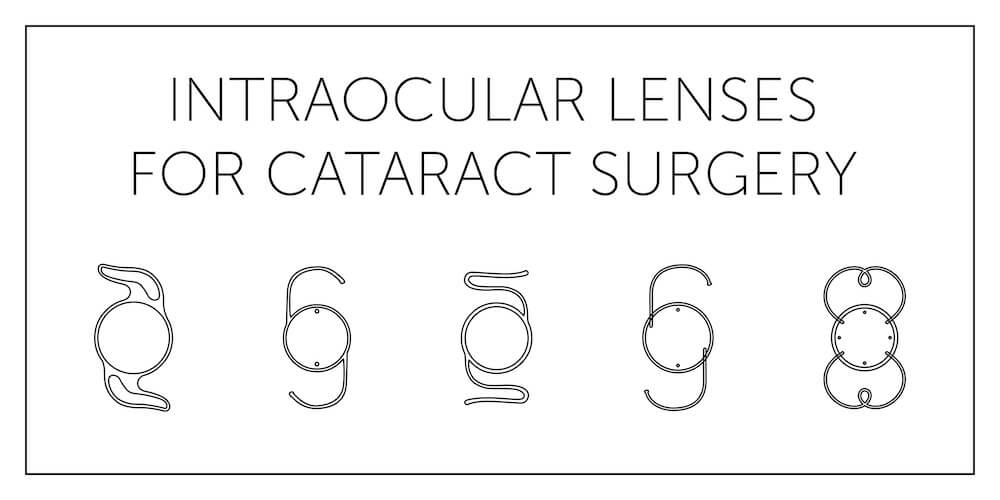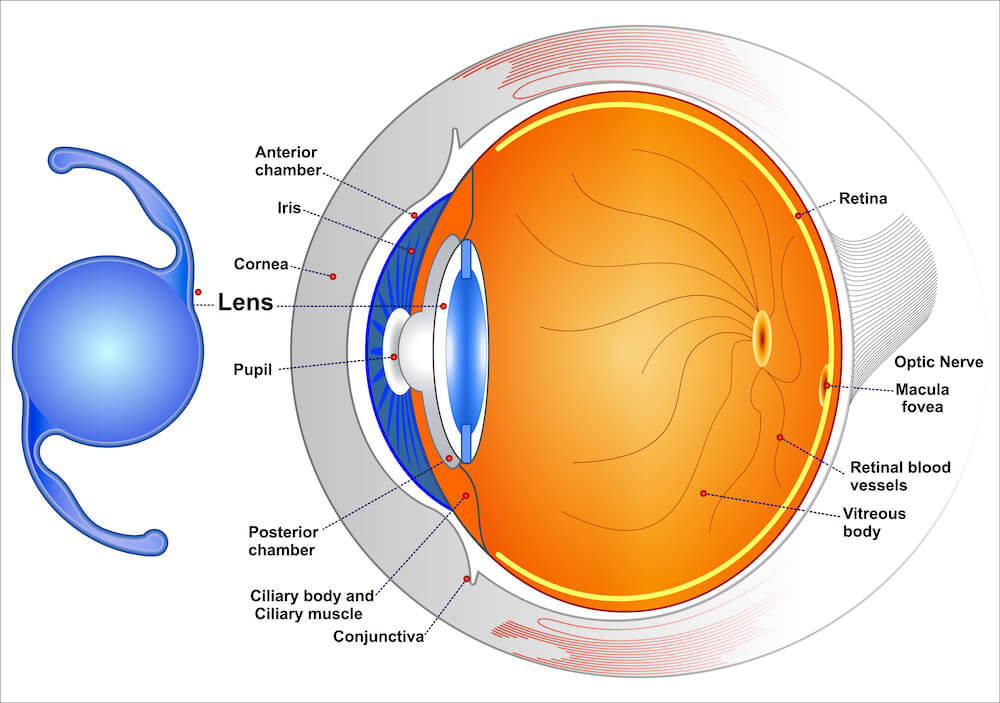
Happens when there is the clouding of an eye’s lens. Types of cataracts form when the two dominant elements that make up our eye’s lens, water and protein, “clump” together and block/blur vision.
This condition is very common and affects nearly half of all Americans by the age of 80. The good news is that you don’t have to live with cataracts.

If you answer “Yes” to any of these questions, you may be showing early signs of cataracts, or have a cataract already.
Cataract eye surgery is a simple procedure with an excellent success record. The clouded natural lens is replaced with an artificial lens called an intraocular lens (IOL). It is done on an outpatient basis with a topical anesthetic that will make it a painless procedure. One eye is done at a time, with a short healing period in between.
After making a very small incision outside your field of vision, your eye surgeon will insert a tiny probe and use ultrasound to break up the clouded natural lens. With suction, the pieces are easily removed, and through the same incision, the IOL is inserted and positioned correctly. You may have a protective shield to wear during sleep for about a week, and your eye surgeon will prescribe eye drops to be used several times each day for several weeks. For best results, it is very important that you follow your surgeon’s post-operative instructions exactly.
Intraocular lenses are permanent lenses placed in the eye during cataract surgery or Clear Lens Exchange. Much like the lens of a camera, IOLs are what focuses your vision and delivers a clear, sharp image.

Advanced Technology Lenses are a type of intraocular lens (IOL) used not only to replace the eyes lens following cataract removal but also to correct astigmatisms, near- and farsightedness and presbyopia. While basic IOLs improve the quality of your vision, glasses or contact lenses will be needed down the line. With Advanced Technology IOLs, patients greatly reduce dependency on glasses or contact lenses and experience a lifetime of clear vision.

If you answer “Yes” to any of these questions, you may be a candidate for premium intraocular lenses.

Yes! For those who have already developed a formal eye problem, typically found in patients ages 60
and above, we recommend modern cataract surgery. Learn more about
surgery here .
For younger patients who exhibit the beginning stages of vision problems, but do not have
a fully-developed cataract, we recommend Clear Lens Exchange (CLE). This procedure corrects vision
and eliminates the inevitable need for surgery later in life. With CLE, a very advanced implantable
lens is put in the place of your eye’s original lens. This new lens corrects distance vision and
astigmatism. It’s a permanent lens and the patient will not develop a risk of cataracts.
By the age of 80, most Americans will have developed blurred vision, which can occur when your human lens becomes clouded to such an extent that it affects your vision and quality of life. This condition typically occurs with age, but can also result from trauma, disease, and use of certain medications.
Several groups have an increased risk for developing cortical cataracts and eventually need surgery. Examples include:
If you have cataracts, or plan to have cataract surgery , and you would like to be evaluated, the doctors of Florida Vision Institute would be delighted to assist you. Our doctors are recognized by their patients and colleagues as innovators and pioneers in age related cataract surgery.
Eye care and treatment is offered in our offices in Stuart, West Palm Beach, Tradition, Port St. Lucie and Jupiter. Call us today so we can help you achieve a brighter future!
Typically, we find that a key indicator of development is the introduction of "night halos" or glares in vision. That, coupled with the above signs (difficulty driving and reading or colors appearing less sharp/vivid) may be warning signs of a contact lenses.
However, the BEST way to know if you have or are developing vision problems is by scheduling a consultation with one of our eye doctors. There, a doctor will run tests to properly assess your vision and whether or not cataract surgery is right for you.
About 2 hours, including the diagnostic procedures.
Clear Lens Exchange (CLE) is a surgical vision correction procedure that restores nearsightedness and farsightedness, and eliminates the need for eventual cataract surgery late in life.

Florida Vision Optique: Monterey Medical Center
Tradition: Healthpark One